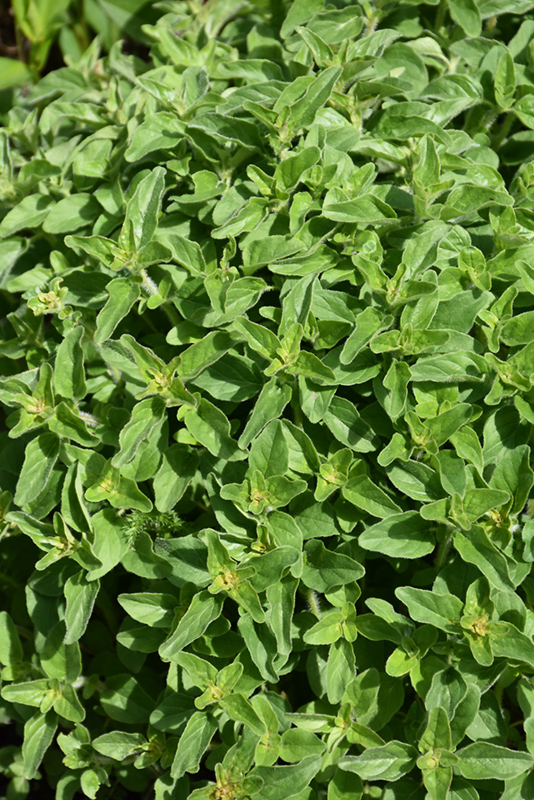Plant Finder
Height: 12 inches
Spacing: 16 inches
Sunlight:
![]()
Hardiness Zone: 4
Other Names: Winter Sweet Marjoram
Description:
Grown primarily in herb gardens for culinary use and noted for very flavorful leaves; does well in sandy loam, good heat and drought tolerance; attractive in containers but has minimal ornamental features
Edible Qualities
Greek Oregano is a perennial herb that is typically grown for its edible qualities, although it does have ornamental merits as well. The fragrant oval green leaves which emerge chartreuse in spring are usually harvested from late spring to mid summer. The leaves have a spicy taste and a distinctive fragrance.
The leaves are most often used in the following ways:
- Cooking
- Seasoning
Features & Attributes
Greek Oregano's small fragrant oval leaves emerge chartreuse in spring, turning green in color the rest of the year on a plant with a mounded habit of growth.
This is an herbaceous evergreen perennial herb with a mounded form. It brings an extremely fine and delicate texture to the garden composition and should be used to full effect. This is a relatively low maintenance plant, and should be cut back in late fall in preparation for winter. It is a good choice for attracting bees and butterflies to your yard, but is not particularly attractive to deer who tend to leave it alone in favor of tastier treats. It has no significant negative characteristics.
Aside from its primary use as an edible, Greek Oregano is sutiable for the following landscape applications;
- Border Edging
- General Garden Use
- Groundcover
- Herb Gardens
- Container Planting
Planting & Growing
Greek Oregano will grow to be about 12 inches tall at maturity, with a spread of 18 inches. When grown in masses or used as a bedding plant, individual plants should be spaced approximately 16 inches apart. Its foliage tends to remain dense right to the ground, not requiring facer plants in front. It grows at a fast rate, and under ideal conditions can be expected to live for approximately 5 years. As an evegreen perennial, this plant will typically keep its form and foliage year-round.
This plant can be integrated into a landscape or flower garden by creative gardeners, but is usually grown in a designated herb garden. It should only be grown in full sunlight. It prefers dry to average moisture levels with very well-drained soil, and will often die in standing water. It is considered to be drought-tolerant, and thus makes an ideal choice for a low-water garden or xeriscape application. It is not particular as to soil type or pH. It is somewhat tolerant of urban pollution. This species is not originally from North America.
Greek Oregano is a good choice for the edible garden, but it is also well-suited for use in outdoor pots and containers. It is often used as a 'filler' in the 'spiller-thriller-filler' container combination, providing the canvas against which the thriller plants stand out. Note that when growing plants in outdoor containers and baskets, they may require more frequent waterings than they would in the yard or garden. Be aware that in our climate, most plants cannot be expected to survive the winter if left in containers outdoors, and this plant is no exception. Contact our experts for more information on how to protect it over the winter months.
